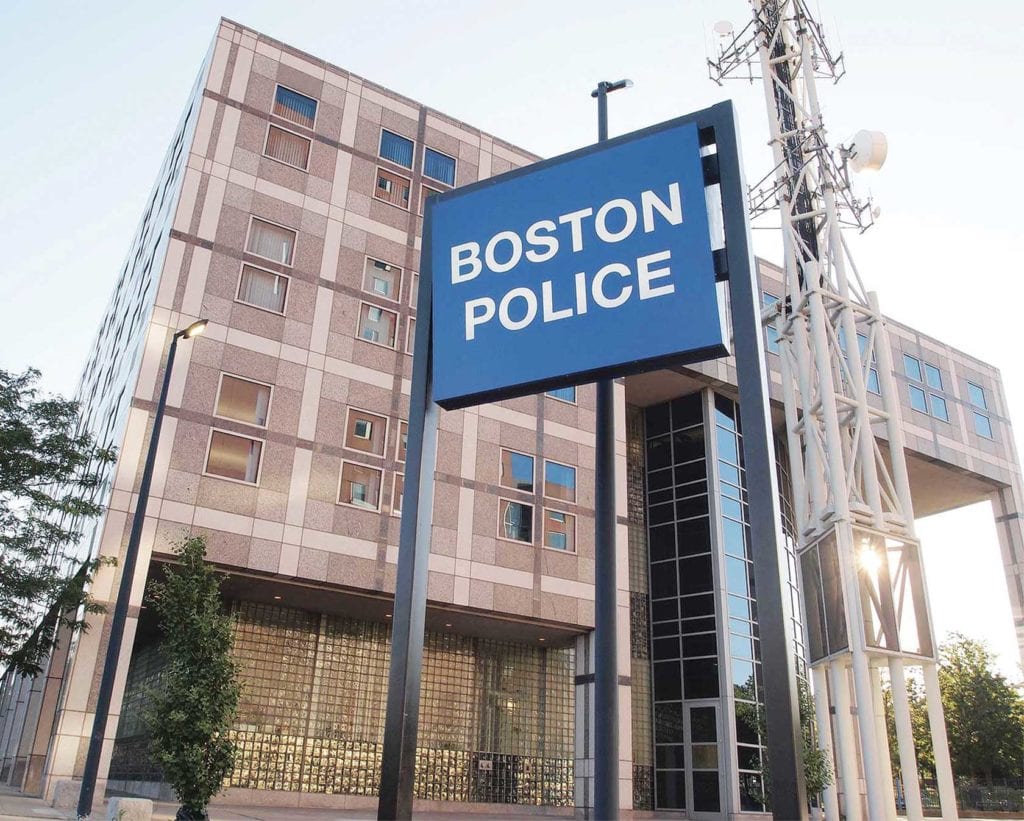Pattern of discrimination seen at BPD
Globe investigation finds discipline disparities

Sgt. Eddie Chrispin wasn’t at all surprised by a recent Boston Globe analysis that found a pattern of disparate treatment between white and Black officers in the Boston Police Department.
As a longtime member and current president of the Massachusetts Association of Minority Law Enforcement Officers, Chrispin has fielded numerous complaints from Black officers alleging disparate treatment.
His larger concern is that the bias displayed within the department may be indicative of a broader pattern of bias in policing.
“To the extent that we have those issues internally, I don’t think we can make the case that we’re treating the public fairly and equitably,” he said.
While Blacks make up 22% of the police force, they account for 27% of allegations of misconduct, 41% of suspensions and 45% of terminations. Whites, who account for 65% of the police force, receive 61% of allegations of misconduct, 51% of suspensions and 55% of terminations.
Chrispin and other Black officers have long called for reforms to the department’s disciplinary system, saying that punishment is meted out differently to white and Black officers for similar infractions.
“We need to take a hard look at what we’re doing and how we can change,” he said.
Chrispin and other Black officers point to a long list of Black officers who received harsh discipline and a longer list of white officers who did not.
For instance, in 2018, nine officers assigned to the predominantly white Youth Violence Strike Force were given three-day suspensions for a Dec. 31, 2017 incident during which they were found to be drinking alcohol while on duty in a BPD building. A tenth officer, who that same New Year’s Eve, ploughed his pickup truck into a sedan, sending its occupants to the hospital, has been suspended with pay while he fights charges of operating under the influence, assault and battery with a dangerous weapon and negligent operation.
A Black officer, David McBride, was also written up in 2017 for allegedly drinking on the job after a city employee told officers he saw him exit his cruiser to dispose of a beer bottle. McBride was assigned to desk duty for eight months while the department kept him under investigation. He retired in 2018 with charges still pending.
Lawyers for Civil Rights has defended many Black officers over the years in wrongful termination lawsuits. Last year, the organization sued the BPD, demanding release of its data on suspensions, terminations and other sanctions. That lawsuit is still pending.
“For years we have known that Black officers and officers of color are subjected to disciplinary measures that are not imposed on white officers,” said LCR Executive Director Ivan Espinoza-Madrigal. “We fully acknowledge that more work needs to be done to make sure Black officers in particular are treated fairly.”
In one LCR case, the Massachusetts Commission Against Discrimination in 2016 found a pattern of bias in the department’s police academy and ordered the BPD to “cease and desist from the disparate treatment of recruits based on race in the imposition of penalties for Training Academy violations.”
Boston Police Superintendent William Gross told the Globe he thinks the department’s discipline is “fair and equitable.”
But City Councilor Ricardo Arroyo said he trusts the data Globe reporters obtained from the department.
“If you have data showing Black officers are treated disproportionately, the data is revealing that it isn’t fair and equitable. That data is showing disparate outcomes. I think that’s troubling.”
City Councilor Andrea Campbell said the department should conduct an investigation of bias in its disciplinary system.
“Our officers work a really tough job,” she said. “When they bring up concerns like this, the department should, at minimum, investigate them.”
Espinoza-Madrigal says the BPD needs to recruit and promote more officers of color to ensure more fairness in its disciplinary processes.
“There has to be a critical mass of officers of color to create a support structure for new recruits and cadets and replace the large numbers of officers of color who are retiring,” he said. “The Boston Police Department is highly resistant to change. The department hasn’t done enough work internally to make sure Black officers and officers of color feel supported.”
Chrispin said the department needs to conduct anti-bias training for all its officers and provide space for officers to have honest conversations about their biases.
“I think we have the ability to do it if people are willing to be honest about their biases,” he said.







